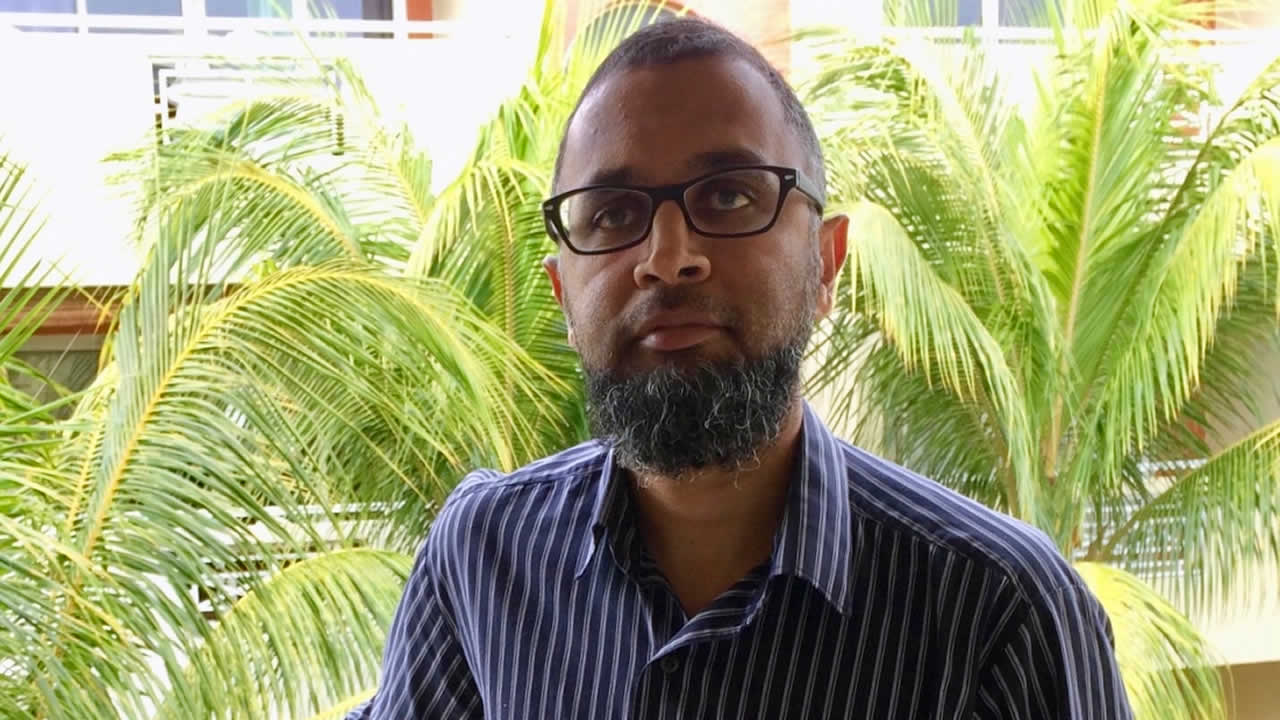
Ismael Ramzun is a Mauritian full stack Engineer and Education Technology trainer, who is now settled in Canada. As a motivational speaker, he seizes opportunities to speak on family themes and technology. Recently, during one of his workshops at Moka, he gave our team of News on Sunday an exclusive interview.
“Encourage your kids to consider technology primarily as a means to a productive end. It is a means and not an end,” states Ismael Ramzun. In Wired Youth, researchers Gustavo Mesch and Ilan Talmud conclude: Most of the empirical evidence on the association between Internet use and family time shows a reduction in the time parents and youth spend together. Another study published in Archives of Pediatrics & Adolescent Medicine demonstrates that teens who spend more time playing on the computer (not for homework) or watching TV were less attached to their parents than kids who spend comparatively gadget-filled lives. “In America, the average adult spends 6.5 hours daily between television, computer, mobile phone and other screens and it would be easy to relate the same habit in Mauritius also,” he declares.
some of the advantages of kids with a healthy parent attachment are that they can regulate their emotions better, score higher intellectually, maintain a higher self-esteem and attachment remains vital in teen years, which makes them less likely to be depressed with fewer behaviour problems."
Basing on recent research by brain researchers such as Daniel Siegel and Allan Schore, Ismael explains that children’s brains are highly plastic and that interactions with their parents have a powerful impact on brain architecture. “Experience shapes brain structure. Experience is biology. How we treat our children changes who they are and how they will develop,” he adds. The latter advises that the brains of children need parental involvement for a healthy growth. According to him, some of the advantages of kids with a healthy parent attachment are that they can regulate their emotions better, score higher intellectually, maintain a higher self-esteem and attachment remains vital in teen years, which makes them less likely to be depressed with fewer behaviour problems.
Furthermore, he adds, heavy media users are also more likely to complain that they get into a lot of trouble. Cyberbullies and cyber victims are becoming a worldwide phenomenon. Heavy internet users are more at risk as online harassment increases the risk that kids will skip school or consider suicide.
What are the solutions?
If one realises that the affects exist, then, the second challenge is to implement the solutions. It is not an easy battle, as everything around us, for instance, advertisements on TV, newspapers, billboards, shopping malls are always pushing us towards buying the latest devices or watching the latest blockbuster. “Nevertheless, with determination and perseverance, nothing is impossible. Parents should try to implement the solutions step by step, as little changes can bring great transformations,” he asserts.
With determination and perseverance, nothing is impossible. Parents should try to implement the solutions step by step, as little changes can bring great transformations"
He finds himself fortunate to live in a neighbourhood where around 100 expat-families from several countries, such as the US, Britain, Canada and Australia have moved in and they all live with similar principles at home, for instance no TV, no media, no game entertainment. The no. 1 principle that he has found to be the most beneficial for both himself and his children is to not use the devices for entertainment (including computers) and to restrict their use as a tool of communication and education. “This principle only works because we are able to spend time together regularly to do real activities,” he explains. For example, Ismael Ramzun and his wife try to alternate reading to the younger children before going to bed and focus on reading aloud and interaction. Also, they are enrolled in several sports activities such as jujitsu, football, gymnastics, athletics, gym, especially for the older teenage boys.
Another productive solution which he proposes is to organise weekly eating out time, such as pizza, that is sometimes connected to playing board games such as carom or Catan. “We only have one smartphone in the family and none of the kids know the password. They can use it as a tool for taking pictures or communication when given permission and only for specific purposes,” he advocates. He does not deny it is sometimes difficult in the beginning, as the parents may feel that they are being too strict. However, the rewards are totally worth it. “Younger kids always greet you with a lot of happiness when you arrive home, older kids share their life experiences with you and ask for advice when they face difficulties,” he states. The Technology trainer describes such environment as “low electrical noise” in the house, since the devices are turned off.
The Technology expert proposes more principles of using digital media & technologies for the whole family.
- Have basic phones with no Internet unless required for work or communication or such specific purposes such as taking pictures or travelling.
- The Family Meal. The family dinner is more than a meal. Coming together, committing to a shared time and experience, communicating, food and attention.
- Restrict the use to non-entertainment type – use as a tool not a toy, for example to watch educational programs.
- Find time to play with your kids, particularly when they are still young.
- Prefer printed books and simple e-books (like Kindle paper white with e-ink). Engage with kids when reading and make reading a family activity at least 2-3 times a week.
- Be a role model to your children. They learn more from what they see rather than what they are instructed.
- Involve your children in real activities like cooking and sewing skills or parents and children exercising and hiking together or reading spiritual stories together.
 J'aime
J'aime













